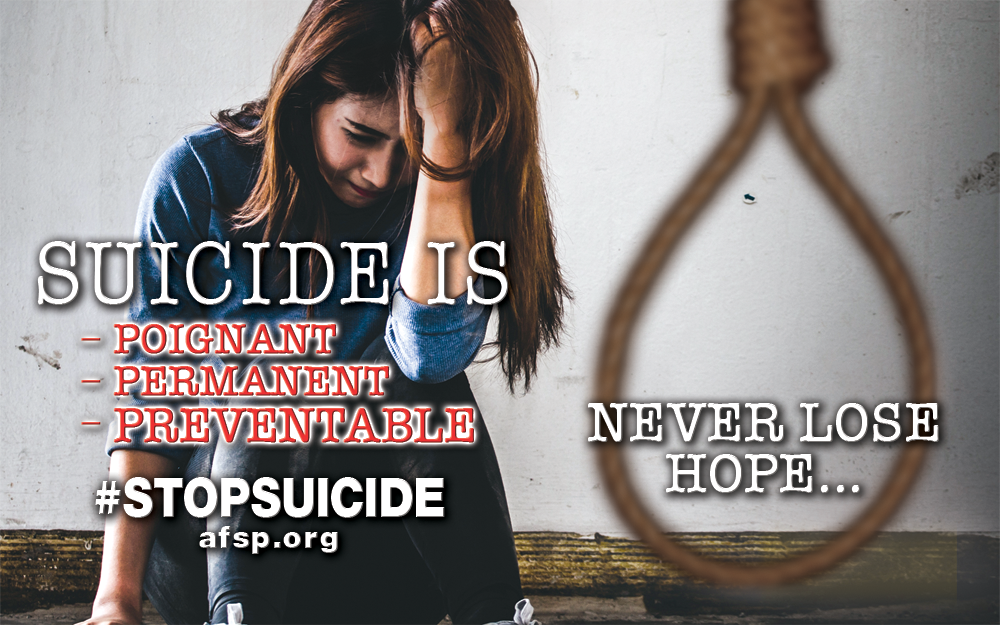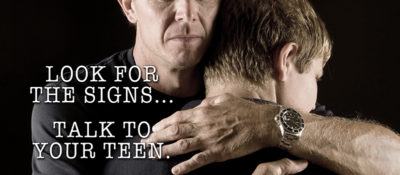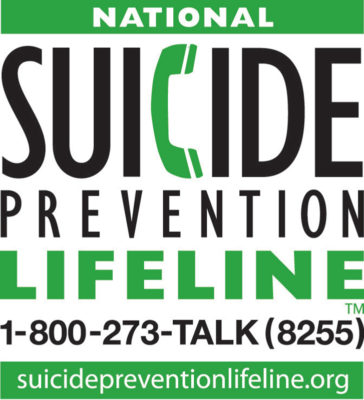
By Noe Gutierrez
With the recent loss of Linkin Park’s Chester Bennington and Soundgarden’s Chris Cornell, the public health issue pandemic that is suicide has continued to echo shockwaves within families across the United States. Despite their prominence, these music icons coped with the same types of stressors that many individuals who attempt suicide experience; mental health/psychiatric issues, substance abuse and relationship/social difficulties. Almost 45,000 Americans die by suicide each year. That makes it the 10th leading cause of death in the U.S. Locally our youth have become increasingly impacted by suicide. Between 2008 and 2014, more than 900 young people ages 10 to 24 attempted suicide in the Coachella Valley, with 100 deaths by suicide. With its widespread frequency, we must approach it with equal and increasing education and interruption along with persistent empathy and sensitivity. In my assessment, at the forefront of our approach should be prevention and treatment for those who disclose thoughts of harming themselves. If we can remove the stigma from suicidal thoughts and plans, then we can intervene on the individual’s behalf to provide emotional support and understanding. This type of psychosocial support system was missing from Erik’s life.
Erik is a 49 year old, 6 ft. 2 in. tall of a man who had been smoking methamphetamine for over 35 years. Erik agreed to share his story of surviving suicide with Coachella Valley Weekly. When I met with him at a local treatment center he seemed like a happy-go-lucky gentleman with a big smile and humorous tone. He recently celebrated over 90 days abstinent from all substances and alcohol. How could it be that this luminous man drove his car off of Highway 74 into a 150 foot ravine completely sober just a short eight months ago?
Erik’s substance abusing history runs deep. Erik told me that substances definitely played a part in his depression. He also identifies that, in his case, depression is hereditary and he suffered distressing symptoms prior to him picking up a methamphetamine pipe. “I’m certain that my depression has always been the underlying factor. I used methamphetamine to escape my feelings.” Research has found that mental disorders and/or substance abuse have been found in 90% of people who have died by suicide. “That day I drove off the cliff, I did it to kill myself. It wasn’t the first time I had tried to take my life. I remember crawling out of the car and climbing the ravine. I cut a huge gash in my head but I survived. After I survived, I knew I had a greater purpose. God was with me.” Erik has a supportive family and young teenage son who has had his own battles with mental illness and substance dependence. “These problems definitely run in families. My son and I talk about everything that has happened. I have gained humility from my experiences. I lost everything and now I’m slowly returning to foundation. Recovery includes mending my heart; the same heart that gave up.” Erik has successfully received support from many different local and national agencies.
Jessica van der Strad is the Inland Empire and Desert Cities Chapter Area Director of the American Foundation for Suicide Prevention, (AFSP). The AFSP is the leading national not-for-profit organization exclusively dedicated to understanding and preventing suicide through research, education and advocacy, and to reaching out to people with mental disorders and those impacted by suicide. “We engage in Five Core Strategies; we fund scientific research, offer educational programs for professionals, educate the public about mood disorders and suicide prevention, promote policies and legislation that impact suicide and prevention and provide programs and resources for survivors of suicide loss and people at risk, and involve them in the work of the Foundation.”
van der Strad continues, “In support of our mission, we engage and train dedicated and passionate volunteers in the Coachella Valley to offer educational programs for professionals, educate the public about mood disorders and suicide prevention, promote policies and legislation that impact suicide and prevention and provide programs and resources for survivors of suicide loss and people at risk.”
 As a member of the helping professions, the best things we can all provide to those enduring the pain of mental illness, substance abuse and thoughts of suicide is recognition and interruption. If we can acknowledge the need for our participation in helping a friend or loved one, we should take the opportunity. Once we have provided a thought-stopping opportunity we can support and guide the person. Below are a list of warning signs and what you can do to help. Please share this article and actively speak with your children about suicide on a regular basis. If we are like-minded in a collective front, opposing the statistics, we can help save lives and lead those being tormented by suicide to a more hopeful outlook.
As a member of the helping professions, the best things we can all provide to those enduring the pain of mental illness, substance abuse and thoughts of suicide is recognition and interruption. If we can acknowledge the need for our participation in helping a friend or loved one, we should take the opportunity. Once we have provided a thought-stopping opportunity we can support and guide the person. Below are a list of warning signs and what you can do to help. Please share this article and actively speak with your children about suicide on a regular basis. If we are like-minded in a collective front, opposing the statistics, we can help save lives and lead those being tormented by suicide to a more hopeful outlook.
WARNING SIGNS OF SUICIDE
Most, but not all, people who die by suicide exhibit warning signs
• Talking about wanting to die
• Looking for a way to kill oneself
• Talking about feeling hopeless, helpless or having no purpose
• Talking about feeling trapped or in unbearable pain
• Talking about being a burden to others
• Increasing the use of alcohol and/or drugs
• Acting anxious, agitated or recklessly
• Sleeping too little or too much
• Withdrawing or feeling isolated
• Showing rage or talking about seeking revenge
• Displaying extreme mood swings
The more of these signs that a person shows, the greater the risk. Warning signs are associated with suicide, but may not be what causes a suicide.
WHAT TO DO
If someone you know exhibits warning signs of suicide:
• Do not leave the person alone
• Remove any firearms, alcohol, drugs or sharp objects that could be used in a suicide attempt
• Call the U.S. National Suicide Prevention Lifeline at 800-273-TALK (8255)
• Take the person to an emergency room for evaluation or seek help from a medical or mental health professional
Jessica van der Strad, Area Director, American Foundation for Suicide Prevention (AFSP) – Inland Empire and Desert Cities Chapter (760) 459-9959 jvanderstad@afsp.org
 The National Suicide Prevention Lifeline 1-800-273-TALK (8255) suicidepreventionlifeline.org A free, 24/7 service that can provide suicidal persons or those around them with support, information and local resources.
The National Suicide Prevention Lifeline 1-800-273-TALK (8255) suicidepreventionlifeline.org A free, 24/7 service that can provide suicidal persons or those around them with support, information and local resources.
The Substance Abuse and Mental Health Services Administration (SAMHSA) U.S. Department of Health and Human Services https://www.samhsa.gov/
Noe G. Gutierrez is a final year Master of Social Work student at California State University San Bernardino. He has worked as a Behavioral Health Specialist III and Prevention Specialist for Riverside University Health System Behavioral Health for over 25 years. He has a Bachelor of Arts in Sociology and is a Certified Addictions Treatment Counselor. You can reach him at (760) 863-2856 or nggutierrez@rcmhd.org













































